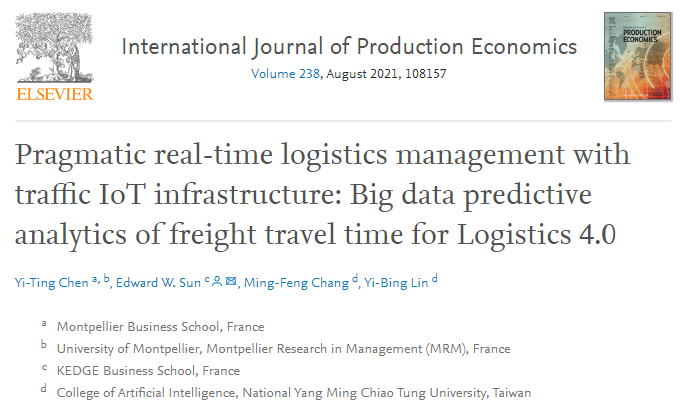With the support of the Higher Education Sprout Project by the Ministry of Education, the research team of Professor Yi-Bing Lin of the College of AI and Green Energy of National Yang Ming University (NYCU) and Professor Ming-Feng Chang of the College of Information collaborated with the research team of Associate Professor Yi-Ting Chen from the Montpellier Management Research Center (MRM) and Montpellier Business School (MBS) in France. This international cooperation project combines the fields of the Internet of Things and machine learning on the basis of information systems and focuses on: (1) how to analyze and use big traffic data in order to ensure the economic efficiency of the overall supply chain in the process of digitalization and automation under the framework of Industry 4.0, (2) how to design a flexible and effective AI algorithm, so as to more accurately predict the road freight transportation time according to the complex and uncertain road traffic conditions, and (3) provide the optimal vehicle operation route for the decision-making planning department in real-time. The research was also assisted and supported by German BOSCH and INFOTECH. The final research result, “Pragmatic real-time logistics management with traffic IoT infrastructure: Big data predictive analytics of freight travel time for Logistics 4.0”, has been published in the JCR-Q1 journal — International Journal of Production Economics (IS=11.85, IF=7.885) (please visit https://www.sciencedirect.com/science/article/pii/S092552732100133X). This international cooperation will continue to strengthen international research cooperation and enhance academic prestige and enlarge the contribution of green smart industry IoT in future digital production and social life.






